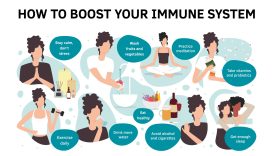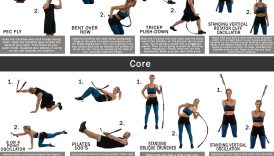From Good to Great: Elevate Your Health with the Right Supplements
Importance of Supplements
In today’s fast-paced world, maintaining optimal health can be challenging. Many individuals find it difficult to consume the necessary nutrients through diet alone, which is where supplements come into play. Nutritional supplements serve as a helpful resource to bridge dietary gaps, ensuring people get the vitamins and minerals essential for optimal bodily functions. For example, busy professionals may overlook their nutritional needs in favor of a quick meal, often leading to deficiencies. By incorporating a daily multivitamin or specific nutrient supplements, they can support their immune systems and overall health.
- From Good to Great: Elevate Your Health with the Right Supplements
- Importance of Supplements
- Factors to Consider When Choosing Supplements
- Understanding Nutritional Supplements
- Vitamins and Minerals
- Herbal Supplements
- Benefits of Taking Supplements
- Boosting Immune System
- Improving Overall Health
- Common Types of Health Supplements
- Omega-3 Fatty Acids
- Probiotics
- How to Incorporate Supplements into Your Daily Routine
- Timing and Dosage
- Consulting with a Healthcare Professional
- Choosing the Right Supplements for Your Health Needs
- Personalized Supplement Plans
- Reading Labels and Ingredients
- Risks and Precautions of Taking Health Supplements
- Potential Interactions with Medications
- Side Effects to Watch Out For
Factors to Consider When Choosing Supplements
Selecting the right supplements is crucial, but with so many options available, how do you begin? Here are some important factors to keep in mind:
- Purpose: Determine what health goals you aim to achieve. This could range from boosting energy to enhancing immunity.
- Quality: Look for products from reputable manufacturers that undergo third-party testing for purity and potency.
- Ingredients: Always read the labels to ensure you are choosing supplements with the necessary ingredients and without harmful additives.
- Dosage: Research and adhere to recommended dosages to avoid excessive intake, which can lead to adverse effects.
By evaluating these factors, individuals can make informed decisions that best suit their nutritional needs.
Understanding Nutritional Supplements
Vitamins and Minerals
Once you’ve considered the importance and selection process of supplements, it’s essential to understand the two primary types of nutritional supplements: vitamins and minerals. These micronutrients play vital roles in maintaining health and wellness. Vitamins, such as Vitamin C and B-complex vitamins, support everything from energy production to immune function. For instance, a friend of mine swears by Vitamin D supplements, especially during winter months when sunlight exposure is limited. This simple addition to her routine has noticeably improved her mood and energy levels. Minerals, like calcium and magnesium, are equally crucial. They help with bone health, muscle function, and many other biological processes. For example, adequate calcium intake is essential for preventing osteoporosis.
Herbal Supplements
Herbal supplements are another fascinating category worth exploring. They derive from plants and often come in various forms, including capsules, teas, or extracts. Popular options such as turmeric and echinacea can offer numerous health benefits, ranging from anti-inflammatory effects to immune system support. When choosing herbal supplements, it’s important to research their traditional uses and available scientific evidence. Always consider consulting a healthcare professional, especially if you’re taking other medications, to avoid interactions or side effects. Embracing both vitamins and herbal supplements can contribute significantly to one’s health journey.
Benefits of Taking Supplements
Boosting Immune System
Following the exploration of vitamins and herbal supplements, it’s crucial to delve into the tangible benefits they offer, particularly in boosting the immune system. In recent times, with rising health concerns, people have become increasingly aware of their immune health. Supplements such as Vitamin C, Zinc, and Elderberry have gained popularity for their immune-enhancing properties. For instance, a colleague of mine started taking Elderberry gummies during flu season, and she swears by their effectiveness in keeping colds at bay. Research shows that these nutrients can help reduce the severity and duration of illnesses, ensuring you feel your best year-round.
Improving Overall Health
Aside from immune support, taking supplements can significantly improve overall health. Adequate nutrients are essential for energy production, cognitive function, and mood regulation. For example:
- Omega-3 Fatty Acids: Known to promote heart health and reduce inflammation.
- Probiotics: Support gut health and can positively impact digestion.
By incorporating these supplements into their routines, individuals can experience heightened energy levels, better digestion, and improved mental clarity. Additionally, supplements can play a supportive role in stress management, helping to keep one’s wellness in check during demanding times. Overall, the right combination of supplements can be a game-changer for those looking to thrive in today’s busy world.
Common Types of Health Supplements
Omega-3 Fatty Acids
Building upon the benefits of taking supplements, let’s dive into some common and highly recommended types that can enhance your health. First up are Omega-3 fatty acids, found predominantly in fish oil. These essential fats play a crucial role in heart health by lowering triglycerides and reducing blood pressure. A good friend of mine added a high-quality fish oil supplement to his daily routine after hearing about its cardiovascular benefits. He was pleasantly surprised by the noticeable increase in his energy levels and overall well-being. Here are some benefits of Omega-3 fatty acids:
- Reduces inflammation
- Improves joint health
- Supports brain function
Probiotics
Next on the list are probiotics. These beneficial bacteria are essential for maintaining a healthy gut microbiome, which is connected to various aspects of health, including digestion and immune function. Many people have found great success with probiotic supplements in managing digestive issues like bloating or irregularity. For instance, a family member started taking probiotics after experiencing upset stomachs from stress. Within a few weeks, she noticed a significant reduction in discomfort and even an uplift in her mood. In addition to gut health, probiotics may also:
- Enhance nutrient absorption
- Support immune response
- Reduce the risk of certain infections
Incorporating Omega-3 fatty acids and probiotics into a daily routine can lead to remarkable health improvements, making them worthy additions to any supplement regimen.
How to Incorporate Supplements into Your Daily Routine
Timing and Dosage
Now that you’re familiar with common types of health supplements, let’s explore how to effectively incorporate them into your everyday life. Timing and dosage can significantly impact the benefits you receive from supplements. For example, some vitamins are best taken with food to enhance absorption, such as Vitamin D or Omega-3 fatty acids. On the other hand, certain probiotics may be best taken on an empty stomach. Here are some tips to guide you:
- Morning Routine: Take multivitamins or Omega-3s during breakfast for optimal absorption and to help establish a daily habit.
- Evening Routine: Consider magnesium supplements at night to support relaxation and better sleep.
- Dosage: Always follow the recommended dosage on the label or consult a professional to avoid unwanted side effects.
Consulting with a Healthcare Professional
Before starting any new supplement, it’s beneficial to consult with a healthcare professional. They can provide tailored advice based on your specific health conditions, dietary restrictions, and lifestyle. When my sister decided to try probiotics, she met with her doctor first. As it turned out, she needed a specific strain to effectively address her digestive issues. Having that expert guidance made all the difference. In addition, healthcare professionals might:
- Recommend appropriate supplements based on blood tests.
- Inform you about potential interactions with medications.
- Help create a personalized supplement plan to meet your unique health goals.
Incorporating supplements mindfully can enhance your overall health, making it a truly worthwhile endeavor.
Choosing the Right Supplements for Your Health Needs
Personalized Supplement Plans
As you navigate through the supplement landscape, creating a personalized supplement plan is essential for meeting your specific health needs. It’s not a one-size-fits-all approach; understanding your individual requirements can make a significant difference in your health journey. For example, after noticing her energy dips in the afternoon, a coworker consulted with a nutritionist who helped her craft a supplement plan focused on B vitamins and iron. Not only did this address her energy concerns, but it also improved her focus throughout the day. Here are a few strategies to consider:
- Assess Your Diet: Analyze what nutrients you might be lacking based on your eating habits.
- Consider Your Age and Gender: Certain life stages may require additional nutrients, such as prenatal vitamins for expecting mothers.
- Set Goals: Whether it’s enhancing immune function or improving skin health, establish clear objectives that your supplement plan should aim to achieve.
Reading Labels and Ingredients
Once you have a plan in mind, the next step is to scrutinize product labels. Reading labels can reveal vital information about what’s inside the supplements you choose. When my brother decided to purchase a Vitamin C supplement, he learned to check for purity, avoiding added sugars and artificial colors. Here are key aspects to pay attention to:
- Ingredient List: Ensure the primary ingredients align with your health goals.
- Third-Party Testing: Look for certifications indicating quality and potency.
- Serving Size: Be mindful of what constitutes a serving and how it aligns with your dosage needs.
By taking these steps, you can confidently choose the supplements that best support your health and wellness objectives.
Risks and Precautions of Taking Health Supplements
Potential Interactions with Medications
As we’ve explored the benefits and guidelines for choosing the right supplements, it’s crucial to address the risks and precautions associated with them. One significant concern is the potential interactions between supplements and medications. Many people may assume that natural supplements are harmless, but that’s not always the case. For instance, my friend was taking a blood thinner and decided to start a daily fish oil supplement. Although Omega-3s are known for their heart-health benefits, they can also increase bleeding risk when combined with anticoagulants. Luckily, his doctor caught this interaction in time. To avoid similar issues, consider these tips:
- Inform Your Healthcare Provider: Always disclose all supplements you are taking.
- Research Interactions: Use reputable sources or apps to check for potential interactions.
- Monitor Effectiveness: If you notice changes in your medication’s effectiveness, reach out to your doctor.
Side Effects to Watch Out For
Along with interactions, it’s essential to be aware of possible side effects from supplements. Each individual can react differently; what works wonders for one may cause discomfort for another. For example, a colleague began taking magnesium supplements to aid sleep but experienced stomach cramps instead. Monitoring how your body reacts is vital. Here are some common side effects to watch for:
- Gastrointestinal Issues: Bloating, gas, or upset stomach.
- Allergic Reactions: Rashes or swelling after consuming certain supplements.
- Overdosage Symptoms: Taking more than the recommended amount can lead to toxicity, especially with fat-soluble vitamins.
By being mindful of these risks and precautions, individuals can navigate the world of supplements safely while maximizing their benefits.





